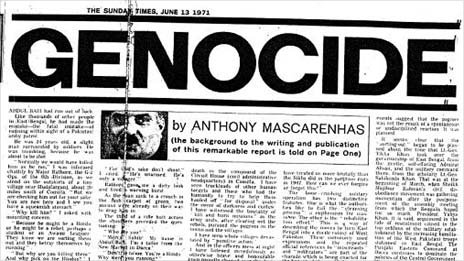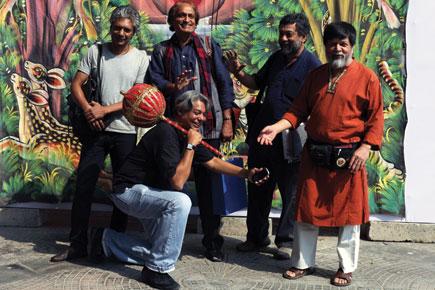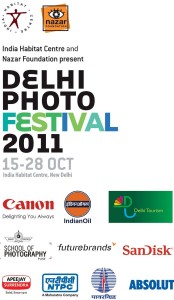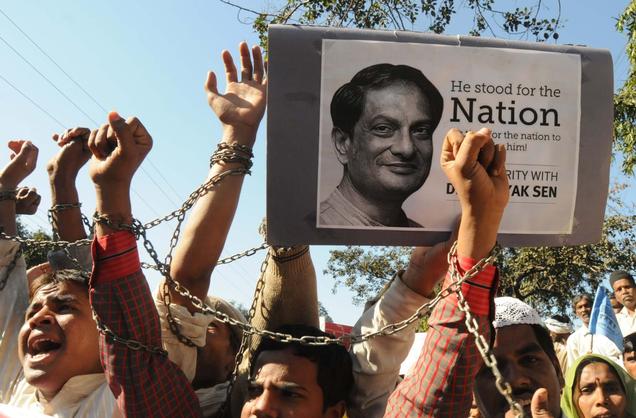7:00 pm to 8:00 pm
Tuesday 20th December
Goa Literary Festival
My Journey as a Witness
Shahidul Alam in conversation with Ranjit Hoskote
Goa Arts and Literary Festival Dec 17-21

2011-11-25
The 2nd Goa Arts and Literary Festival is meant to coincide with the 50th anniversary of Goa’s liberation after 451 years of colonial rule. It will reflect on the idea of India as reflected through the perspective of cultures, communities and writers of the country. It is hosted by the International Centre Goa from December 17-21.
The festival will touch upon Diaspora, on the Goan and other Indian migrant communities across the world which retain different ideas about what being Indian means; North-East of India and its art, music and literature. The festival will celebrate music, painting and photography, poetry, journalism and publishing, debates, discussions and book-releases: from 17-21 December. Local, national and international delegates will be attending.
Exactly 50 years after the historic days when Indian troops conquered, and annexed Goa. It was another dramatic moment in history for this tiny territory. Each day of the Festival will recall 1961, featuring historians and witnesses to the sensational events as they occurred, as well as lectures, special book releases, and panel discussions about the Goan experience of the Estado da India, quite different from much of the rest of the subcontinent’s experience with the British Raj.
The 2011 Goa Arts and Literary Festival will celebrate creative excellence across India, with a special focus on Goa and its Diaspora. As with the inaugural edition, there will be prominent daily showcases for the best contemporary poetry from across India, and for the extraordinary writers and musicians of the North East.
Events such as this Festival will be held annually so that the quality of the Festival is enriched and enhanced every year by involving more and more people and their ideas and the image of Goa in people?s mind is of a more vibrant cultural and intellectual destination.
Participating Authors:
Aatish Taseer, Abhay Sardesai, Amitav Ghosh, Anand Patwardhan, Anjum Hasan, Aniruddha Sen Gupta, Bhalchandra Nemade,Bilal Tanweer,Charles Correa,Chiki Sarkar, C P Surendran, Cyril Almeida, Deborah Baker, Desmond L Kharmawphlang, Eunice de Souza, Fatima Bhutto, Gulzar, H M Naqvi, Jai Arjun Singh, Jeet Thayil, Jerry Pinto,Jonathan Shainin, Kiran Nagarkar, Kjell Eriksson, Kynpham Sing Nongkynrih, Manohar Shetty, Mamang Dai, Meena Kandasamy, Mitra Phukan, Mohammed Hanif, Mridula Garg,M. T. Vasudevan Nair, Naresh Fernandes, Nirmal Kanti Bhattacharjee, Pablo Bartholomew, Pavan K Varma, Raghunath Mashelkar, Ranjit Hoskote, Robin Ngangom, S. Anand, Sadia Dehlvi, Saeed Akhtar Mirza, Samar Halarnkar, Sidharth Bhatia, Shahidul Alam, Shailaja Bajpai, Shehan Karunatilaka, Sheen Kaaf Nizam, Sivasankari, Sonia Faleiro, Sukrita Paul Kumar, Sunil Khilnani, U.R. Ananthamurthy, Urvashi Butalia,Temsula Ao,Teju Cole, Vishwas Patil, Zac O’Yeah
Participating Artists and Performers:
Dr. Alka Pande, Atul Dodiya, Durgabai Vyam, Gulam Mohd Sheikh, Himanshu Suri, Lou Majaw, Luis Gumby Pinto, Subhash Vyam,Dr. Subodh Kerkar, Suresh Jayaram, Suresh Jayaram, Vijay Iyer










